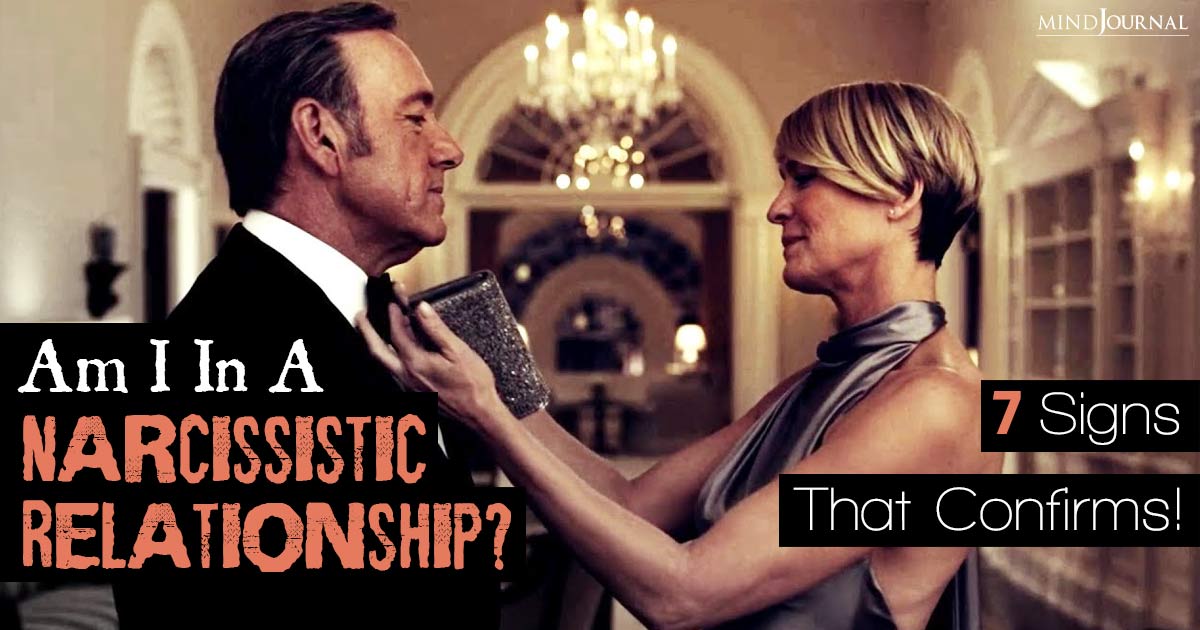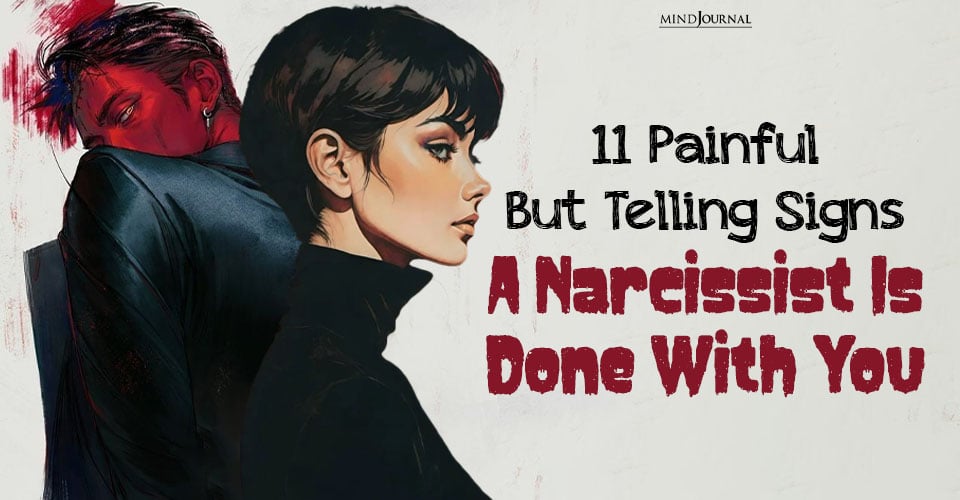Do you constantly try to make sense of things that do not make sense? We know how exhausting that might be, constantly running in a loop with no ends not only drains you emotionally but also has serious effects on your physical and mental health.
If you can relate to the first sentence, you might have ended up with a narcissist, that is, someone having Narcissistic Personality Disorder (NPD). This article discusses the 7 undeniable signs of being in a narcissistic relationship.
7 Ways a Victim Behaves in a Narcissistic Relationship
You might be scared to face the reality that can break your heart. But do not let manipulation cloud your sense of self-worth, look out for these signs to learn the truth.
It is better to be hurt by the truth than to get used by lies. If you find yourself doing these 7 things, you are in a narcissistic relationship.
1. Rumination
If you catch yourself overthinking and overanalyzing every little detail, you have entered the phase where you are obsessing over the relationship due to constant confusion. You might feel like you are going insane at this point. You fail at defending yourself from being called crazy!
2. Regret and Guilt
“I wish I could have said this’ or “I must say this” makes you even more anxious and scared to imagine your partner’s reaction on hearing these phrases. You have bouts of regret and guilt that drives you mad. You are torn between the constant unjust treatment and the chances of them realizing and changing.
3. Euphoric Recall
You often cherry-pick the good days, even if it is just one day in an entire month. “he/she finally allowed me to express my feelings without being angry at me”. You are so accustomed to the bare minimum that something which is a given in relationships appears like an extraordinary form of love.
4. Self-abuse
You end up not liking yourself anymore and always try to change yourself to make the other person more comfortable. Unknowingly, you compromise on your boundaries and shame yourself to suit the needs of your partner.
5. Walking on eggshells
Your partner has made you believe that your reactions to their disrespect are more abusive than the disrespect itself. You navigate through communications fearfully and try to express your feelings anxiously to avoid backlashes.
6. Anger outburst
The constant denial of truth and reality takes you over the edge. At some point, you react owing to the rage for being unjustly treated. But, then again, your anger outburst is used against you. You get exhausted trying to show the real reason behind it.
7. Looking for closure
You never get closure in a conversation and are always hopelessly and unfairly defeated. It is never a conversation but always an argument! You never get to be assertive in a conversation, it is either their way or the highway!
If you are desperately looking for closure, THAT IS YOUR BIGGEST CLOSURE!
Related: The “False Self” Of A Narcissist: Look Beyond The Facade!
What is the Next Step in a Narcissistic Relationship?
Once you have recognized the symptoms of being under the influence of a narcissist, you can choose to decide.
It is impossible for a narcissist to change. They believe in a love that suits their convenience, for extracting as much as possible from people who love them and maintaining a facade of the humblest human in front of strangers.
Their ideology of love is that of loving objects, temporary and driven ONLY by pleasure and need.
But why do we still fall for such people and engage in a narcissistic relationship?
Narcissists are emotional predators who can sniff out your vulnerabilities and present themselves exactly as the person you need. A narcissistic relationship starts with euphoric love followed by devaluation and discarding the victim. This abuse cycle goes on until you are completely emotionally drained.
Why Do You Need to Look Out for Narcissists?
Narcissistic abuse can cause depression, anxiety, anger issues, nervous system dysregulations and depression.

It harms your future relationships and makes you incapable of trusting anyone.
But, most importantly, it ruins your relationship with yourself.
What is Your Best Option?
Hoping for a narcissist to change is like hoping for rainbows amidst storms. If you love or genuinely care and hope them to become a better person, start by not enabling them.
It is always better to allow people to face the results of their actions by not putting up with their abuse and validating it.
Related: 22 Stages of Relationship Between An Empath And Narcissist
Takeaway
Narcissists are emotionally stunted people who are afraid of facing their faults. They would rather lose you than be honest with you. They compulsively justify themselves to maintain their superficial image. Reasoning with a narcissist does not bear any fruit, but your life can still be productive if you choose to water the place that actually nourishes you by moving on from an insidious narcissistic relationship.
Can narcissists love?
Narcissists have a distorted view of love. Love for them is not being emotionally supportive or available for their partners. They always try to be superior.
Am I a Narcissist?
If you were, you wouldn’t have asked this question. Narcissists can never see the wrong in themselves, they are always right!
What is the Best Way to Give it Back to the Narcissist?
The best way is to never connect or engage with them and give them the chance to manipulate further.
Can Narcissist feel heartbroken?
The only time a narcissist feels heartbroken is when they lose a supply. But they don’t wait too long before finding another person for boosting their ego.









Leave a Reply